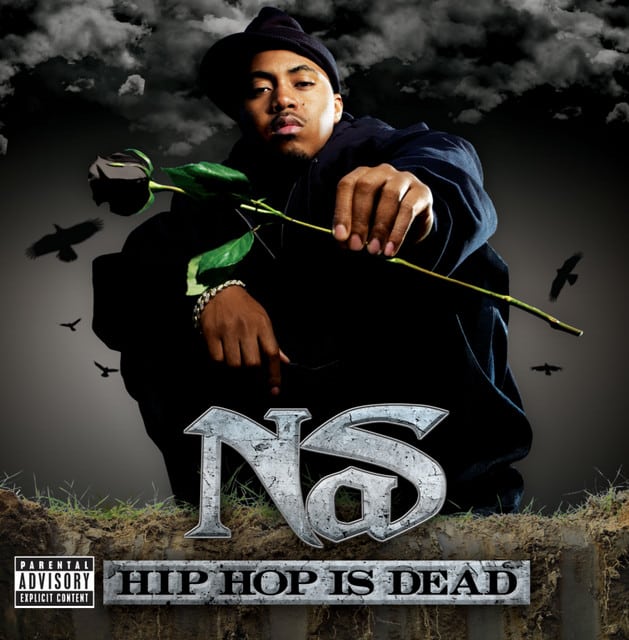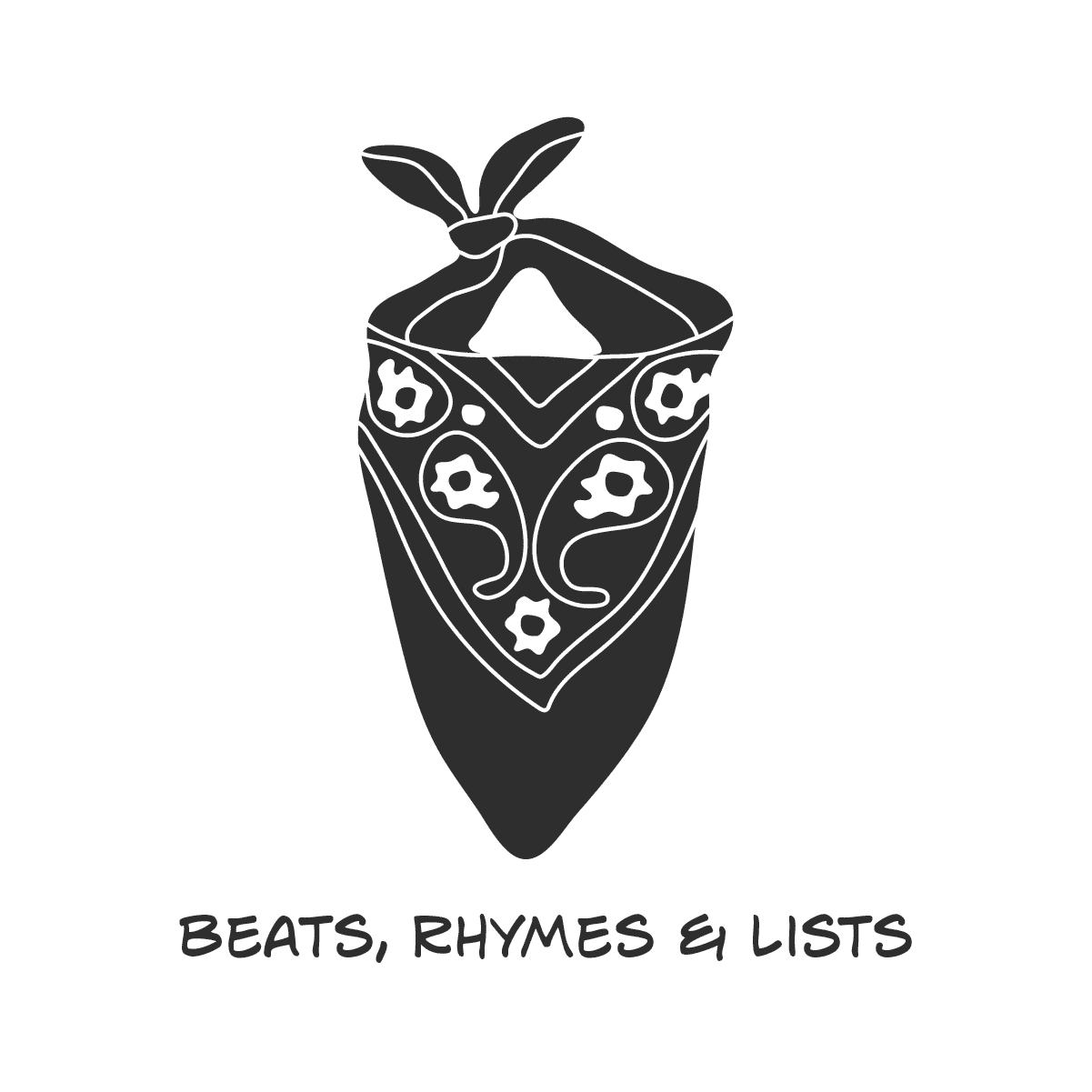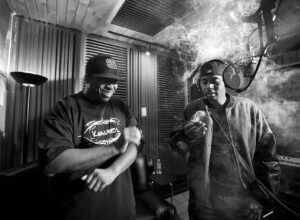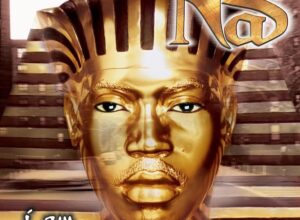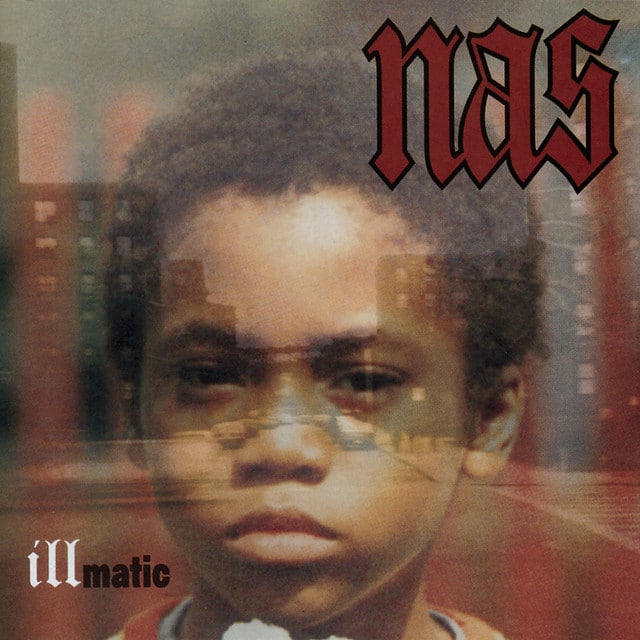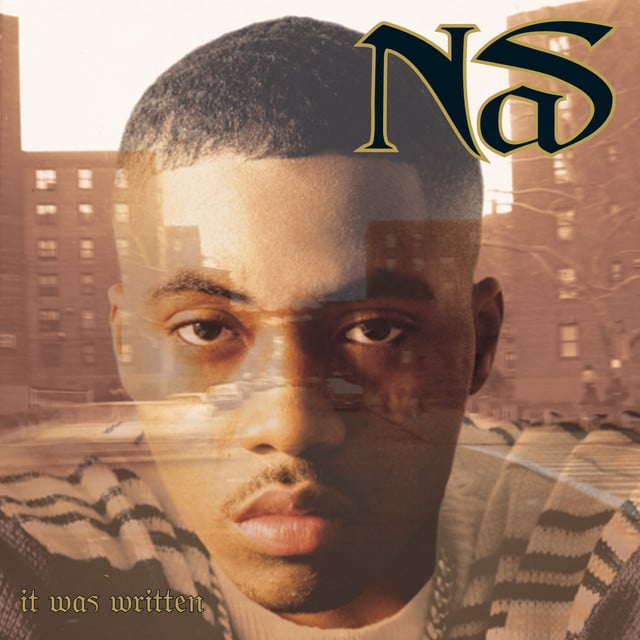Released: 2007
Label: Def Jam Recordings
Featuring: will.i.am, JAY-Z, Kelis, Kanye West, Chrisette Michele, Tre Williams, Snoop Dogg, The Game, Marsha Ambrosius
Nas ain’t just a rapper. He’s a storyteller, a philosopher, a social commentator, and a lyrical genius. His eighth studio album, “Hip Hop Is Dead,” released in 2007 under Def Jam Recordings, is a testament to his multifaceted talent. The album is a powerful reminiscence of hip-hop’s golden era, a critique of its current state, and a prophetic message for its future. From “Money Over Bullshit,” a relentless critique of superficiality and betrayal, to “Hope – Acappella Version,” an audacious manifesto on preserving hip-hop’s authenticity, Nas navigates the complexities of the culture, narrating the stories that shaped him and others. Collaborations with prominent contemporaries like will.i.am, JAY-Z, Kelis, Kanye West, Chrisette Michele, Tre Williams, Snoop Dogg, The Game, and Marsha Ambrosius further enrich the album’s soundscape. So let’s get into it. From “Money Over Bullshit” to “Shine On,” here we are breaking down the album “Hip Hop Is Dead” by Nas.
1 Money Over Bullshit
Nas paints a vivid picture of life in the East Coast cartel, filled with danger, loyalty, and the omnipresent threat of betrayal. A standout hard-hitting line, “Afraid not of none of you cowards but of my own strength,” mirrors the internal conflict of a leader in a world where might and cunning often dictate the rules. This line encapsulates the essence of the track – a reflection on the personal and external battles waged in the quest for power and respect. Nas’s lyrical prowess is on full display as he navigates through life’s complexities, positioning money and strategic thinking over brute force and ignorance.
2 You Can’t Kill Me
Flowing over a menacing beat, he paints a vivid picture of his New York City nights, filled with luxury, danger, and the ever-present threat from those looking to undermine his status. A standout line, “Niggas want beef, I want some of that cow too,” reflects Nas’s readiness to confront his adversaries head-on, showcasing his fearless attitude and refusal to be victimized or taken down by the streets he reigns over.
3 Carry On Tradition
He contrasts the struggles of rap’s founding figures with the flashy lifestyle of current stars, highlighting a loss of substance and respect for the craft. Nas calls for a return to authenticity, urging contemporary artists to honor the roots and essence of hip-hop rather than succumbing to commercial pressures. A standout line that encapsulates this sentiment is, “Hip-Hop been dead, we the reason it died,” laying the blame on the community itself for drifting away from the original ethos of hip-hop.
4 Where Are They Now
With lines like “Rap is like a ghost town, real mystic, like these folks never existed,” Nas vividly paints the picture of an industry that quickly moves on, often forgetting its pioneers. This track is not just a nostalgic trip through hip-hop history, but also a wake-up call to recognize and celebrate the architects who built the culture.
5 Hip Hop Is Dead
Features: will.i.am
He recounts the evolution from street poetry and social activism to a genre mired in materialism and sameness, stating, “Everybody sound the same, commercialize the game. Reminiscin’ when it wasn’t all business.” This line hits hard, capturing the essence of Nas’s stance: a critique on the industry’s shift from authenticity to commercial viability, marking the so-called ‘death’ of hip-hop. Through vivid storytelling and critique, Nas not only chronicles hip-hop’s journey but also challenges listeners to ponder its future trajectory.
6 Who Killed It?
Through the tale of Pretty Mike, Two-Face Al, and a mysterious dame with a connection to hip-hop’s roots, Nas laments the genre’s perceived decline. The standout line, “Your conspiracy theories won’t work without evidence, that’s the reason why Eric B. is not president,” cleverly critiques those who blame external factors for hip-hop’s issues while dropping a nod to Eric B. & Rakim’s “Eric B. Is President.” This track, rich with metaphors and historical references, positions hip-hop’s downfall not in its creativity or complexity, but in its departure from the authenticity and raw storytelling that legends like Kool Herc birthed. Nas’s narrative style not only pays homage to hip-hop’s origins but also critiques its current state, urging a return to form.
7 Black Republican
Features: JAY-Z
Offering a glance into their inner conflict, they juggle the allure of financial success against the gravitational pull of their origins. A standout line, “I feel like a Black Republican, money I got comin’ in / Can’t turn my back on the hood, I got love for them,” encapsulates the struggle of prospering while maintaining authenticity and loyalty to where one comes from. This collaboration not only marks a historic moment in hip-hop, thawing an infamous beef, but also delves into the complexities of identity and success within the culture.
8 Not Going Back
Features: Kelis
Nas weaves a narrative of growth and realization, distancing himself from the allure of a lifestyle that once defined him. His introspection reveals a deeper wisdom about the traps of fame and the ephemeral nature of material success. He articulates this transformation with the line, “The hood’s in me forever y’all, but I’m not going back,” underscoring a rooted identity that refuses to be swayed by the past’s temptations.
9 Still Dreaming
Features: Kanye West, Chrisette Michele
This track articulates the complexities of aspirations and reality, underpinned by personal stories that resonant with the struggles for success and the pitfalls of materialism. The song eloquently captures the essence of striving and the dangers of being consumed by dreams and illusions. A standout line, “How you a man waiting for the next man to get rich? Your plan is to stick out your hand real quick,” critiques the mentality of dependency and the lack of self-initiative, encapsulating the song’s theme of self-reliance and the critique of chasing superficial dreams.
10 Hold Down The Block
The song paints a vivid picture of navigating through violence, economic hardship, and the ever-present eye of law enforcement. Nas’s lyrical prowess shines as he narrates the struggle to maintain control and dignity amidst chaos, using his “imagination to change the situation.” A standout line, “I gotta hold down the block, when the block is hot,” encapsulates the relentless pressure and the indomitable spirit required to survive and protect one’s territory in an environment where every day feels like a battle.
11 Blunt Ashes
Nas uses the act of smoking to muse on the impactful, yet often tragic lives of figures like Langston Hughes, James Dean, and Marvin Gaye, revealing the darker sides of fame and success. A standout line that hits hard is, “Did I, did I keep it gangsta or keep it classy? And will the money and fame outlast me?” Here, Nas questions his own legacy juxtaposed against these storied pasts, evoking a sense of introspection about the impermanence of life and the lasting impact of one’s actions.
12 Let There Be Light
Features: Tre Williams
Through a narrative that weaves the grim realities of urban life with the pursuit of enlightenment, Nas stands as the enlightened street poet, articulating the struggle between good and evil, hope and despair that defines the human condition. A standout line, “I know that I ain’t got much time left,” underscores the urgency and fleeting nature of life, capturing the essence of striving for light amidst darkness.
13 Play On Playa
Features: Snoop Dogg
The track is slick with references to luxurious living and the pursuit of money, but it’s laced with deeper concerns about the impact of one’s actions and the importance of passing on wealth responsibly. A standout line that encapsulates the essence of the song comes from Nas, “Pray my daughter don’t wild like the Hilton Sisters / That’d kill me yo, filthy rich.” It reflects the hope and fear of a father, wishing for wealth without the loss of values, a sentiment that elevates the track beyond mere braggadocio. Snoop’s smooth West Coast vibe pairs perfectly with Nas’s East Coast introspection, making “Play On Playa” a multifaceted exploration of success and morality within the game of life.
14 Can’t Forget About You
Features: Chrisette Michele
Nas reminisces about the golden days of hip-hop, name-dropping legends and landmark moments with a smooth flow that bridges past and present, grounding his narrative in the personal and the universal. He lays bare his nostalgia for a time when rap was a burgeoning force, changing lives and shaping futures. A standout line that encapsulates this blend of personal reflection and cultural commentary is, “When was the last time you heard a real anthem? Nas, the millionaire, the mansion.” This line not only highlights Nas’s status in the game but also questions the current state of hip-hop anthems, urging listeners to remember the tracks that truly resonated with them.
15 Hustlers
Features: The Game, Marsha Ambrosius
Nas and The Game swap verses that paint vivid pictures of their early struggles, influences, and eventual rise to the top of the game, meshing East Coast lyricism with West Coast vibes. A standout hard-hitting line, “I was the only Compton nigga with a New York state of mind,” captures The Game’s unique position in hip-hop, bridging two coasts with his profound respect for Nas’s ‘Illmatic’ while navigating life’s complexities in Compton. This track is a testament to resilience, survival, and the unbreakable bond between true hustlers.
16 Hope – Acappella Version
Through its acapella delivery, Nas strips down to the essence of hip-hop’s narrative power, reminiscing about the past while confronting the genre’s present challenges. He evokes vivid imagery of his upbringing and early influences, from Melle Mel’s impactful storytelling to the gritty reality of life in Queens, asserting “Hip hop (it will never die).” A standout line, “it’s a pretty good chance your lame ass, corny ass is the reason it died, man,” serves as a pointed critique at those diluting the genre’s authenticity. This track is a manifesto, urging both preservation and innovation within hip-hop culture.
17 Shine On
With the line, “Everybody wants heaven, but nobody wants dead. Everybody wants diamonds without the bloodshed,” he compellingly captures the moral paradox of desiring luxury at the expense of human suffering. The song dives deep into the heart of conflict diamonds, telling tales of exploitation and violence that fuel the journey of these gems from the Earth to the storefront. Nas doesn’t just rap; he educates and provokes thought, urging listeners to consider the human cost behind their sparkle.
